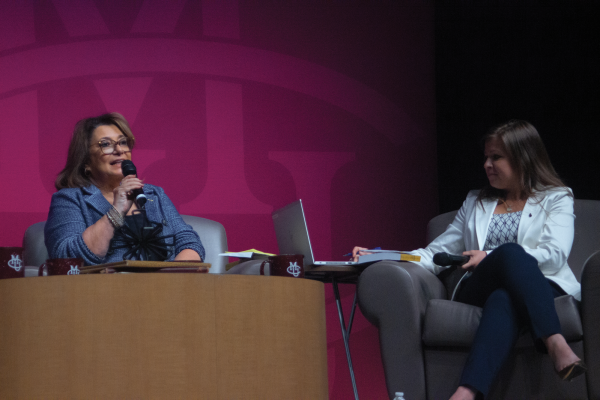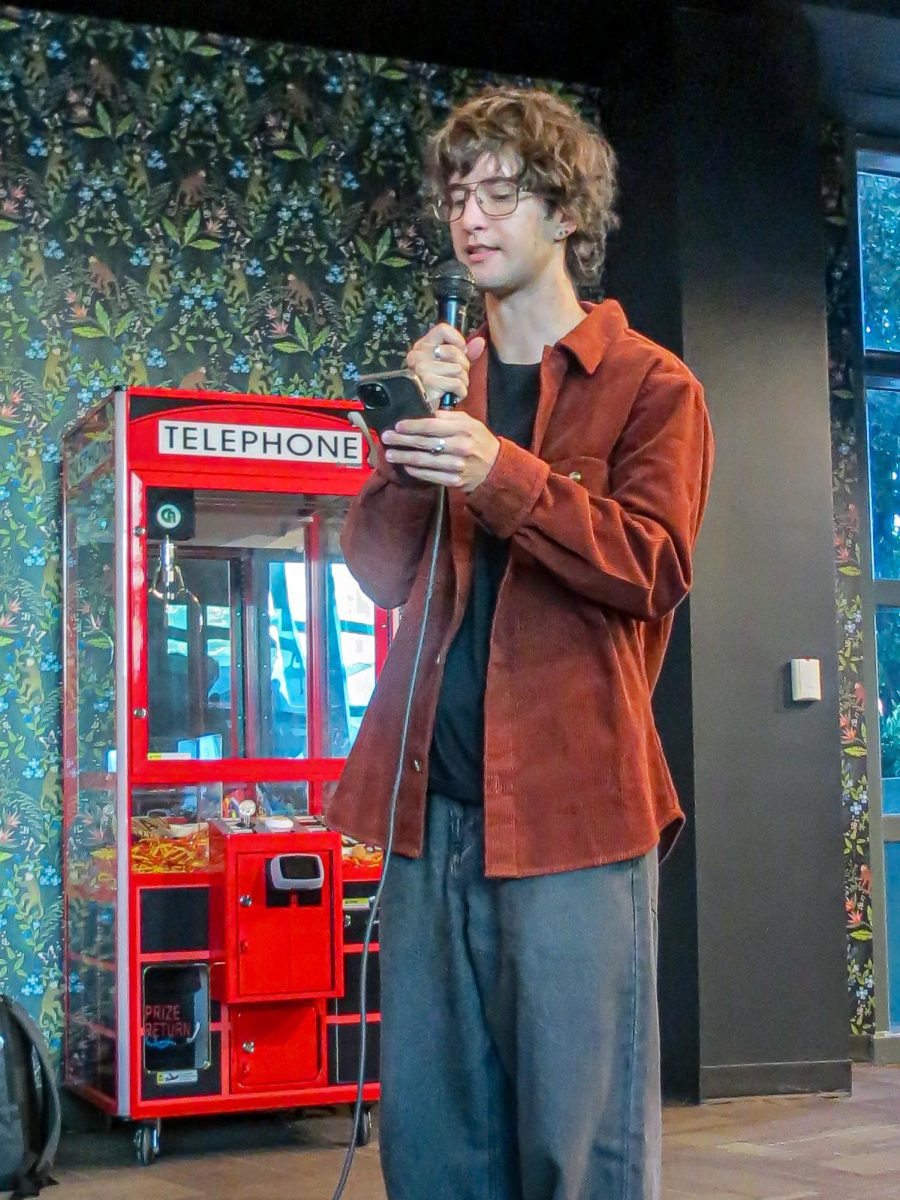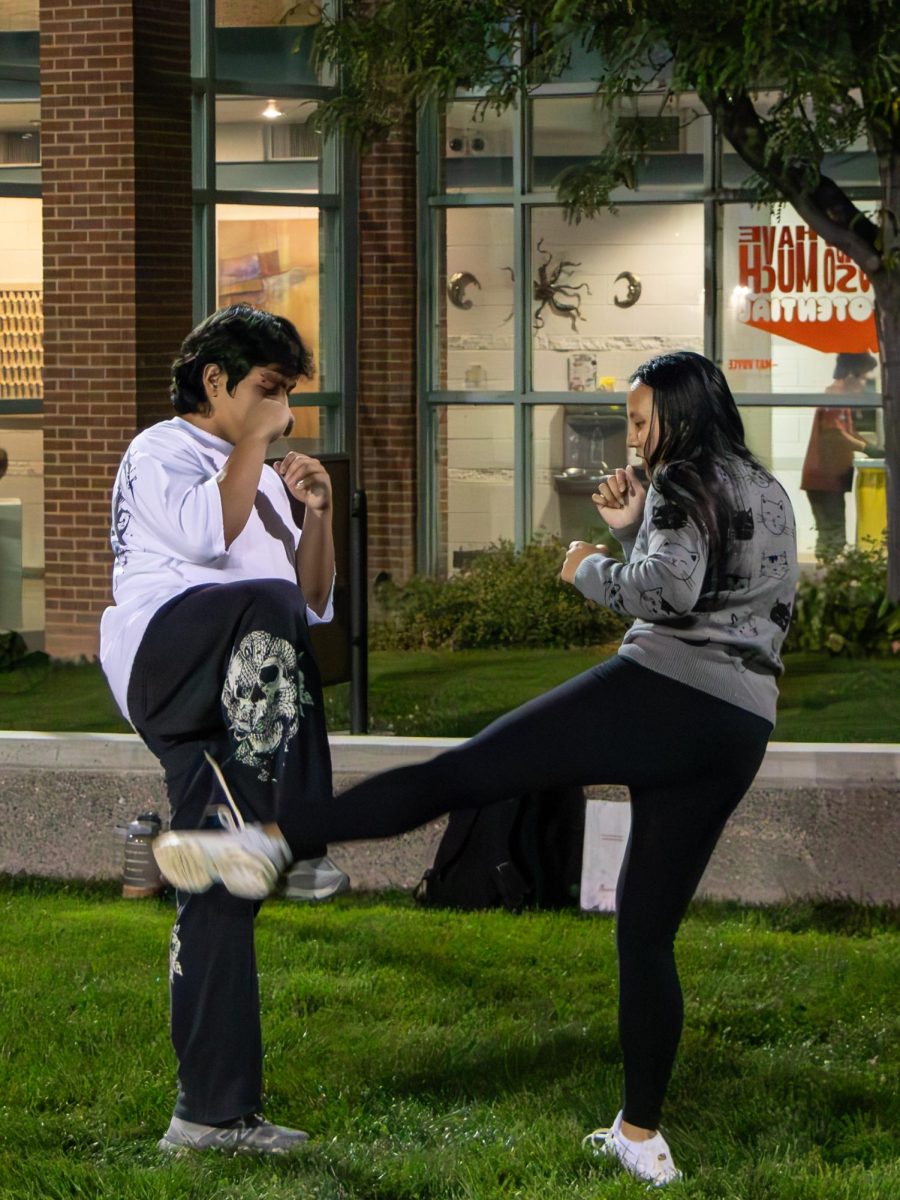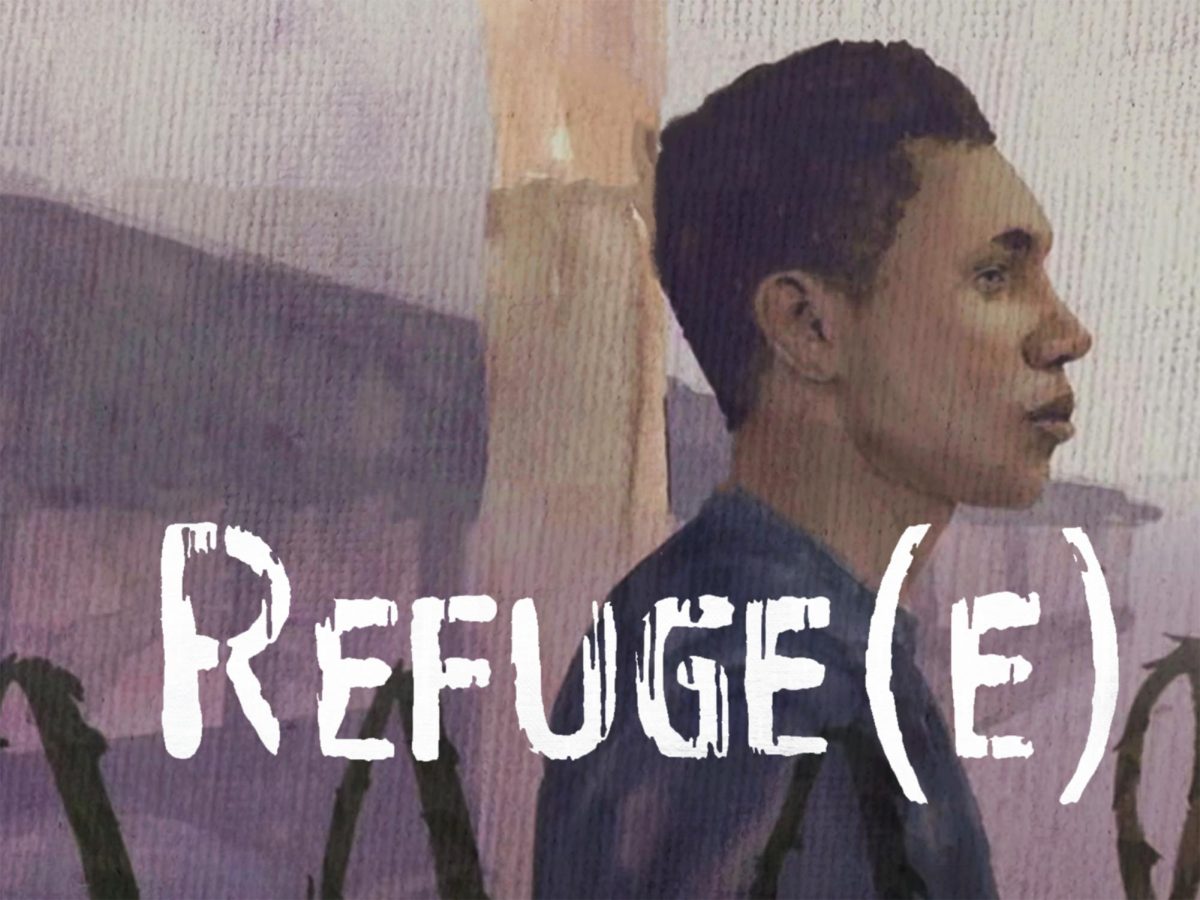The Holocaust Awareness Series, hosted by The Civic Forum series, aims to unite the student community through free Holocaust education.
A moment of silence began the week-long series, with students, volunteers and campus staff gathering on the field south of the plaza. They staked thousands of flags into the ground to represent the marginalized groups targeted by the Nazi party during World War II. The flag colors aligned with those that the Nazi party utilized to label groups they were demonstrably targeting. Each flag in this large, public display symbolized approximately 5,000 persecuted individuals.
“The Holocaust Awareness Series acts as a memorial to the atrocities that happened back in the early 20th century.” said applied mathematics major Connor Cunningham. “And as a reminder to how [Dr. Patarino] put it, to be resilient, to rise up against totalitarian opression.”
The following day, the Asteria Theater screened “Life that Matters,” which is a recently finished documentary about Ben Lesser. A known Holocaust survivor and public speaker from Krokaw, Poland, Lesser regularly speaks with students all over the United States and Europe about his experiences during the Holocaust.
His harrowing story, starting in the 1940s, involved surviving a death march, two death train encounters and four concentration camps. Lesser’s recollections range from accidentally slicing his throat for a piece of bread to watching the death of his fellow concentration camp detainees.
Survival after these encounters appeared highly unlikely to Lesser, who was an 11-year-old when the Nazis invaded his home. Fortunately, Lesser’s liberation came in 1945 and he discovered his sister, Lola, managed to survive as well.
After moving from Krokaw to the United States, Lesser began the Zachor Holocaust Remembrance Foundation. Lesser’s non-profit organization seeks to support those speaking out against bullying, racism and intolerance.
“If you’re being bullied in school, you should feel safe to report it at our website,” explained Lesser’s daughter Gail Lesser Gerber. “We went and talked with hundreds of children in Germany. [My father] stood in the Hall of Mirrors, where Hitler stood, and told his story to prevent bullying in the future.”

The film itself expressed Lesser and Lesser Gerber’s passion for fighting intolerance. The open discussion preceding the screening emphasized this desire. Many individuals asked for reliable ways from Lesser to combat bigotry, as he attended the event over a ZOOM call.
“We need to stop the bullying in schools and stop all the hate and racism,” said Lesser. Assistant English professor Colin Carman brought Holocaust awareness supporters back into the classroom with a presentation on Hannah Arendt’s theory on the Banality of Evil.
Arendt’s theory posits that Adolf Eichmann, who ultimately approved the Final Solution during World War II, was neither a fanatic for the Nazi party or a murderer. Instead of a ideological motive, he relied on ideals of promotion and prestige to justify this decision. Due to the subject matter in question, the theory is both popular and controversial in academia.
Despite the heavy subject matter, Carman emphasized that he would keep the topic diversified in application and engaging. “I will be referring to the Nazis as evil, even if you disagree, because they’re evil. But we’ll try to keep things as light as possible,” said Carman.
Carman’s lecture utilized various media examples, like Shirley Jackson’s short story “The Lottery” and the 2001 film “Conspiracy,” to illustrate potential applications of Arendt’s theory. Additionally, Carman considered real life examples, including the murder of Kitty Genovese in New York.
“All 37 people who saw Kitty’s stabbing didn’t help and I […] bring this up because it connects with Arendt’s theory on the banality of evil. Why didn’t they help?” said Carman.
The Holocaust Awareness Series concluded with two lectures on the narratives of the comfort women from South Korea and an analysis of Art Spiegelman’s graphic novel, “Maus.”
For those hosting these many events, from the Civic Forum to survivors, ensuring the extremities of the Holocaust can never occur again is the main goal. “Hitler and the Nazis did not start with killing. They started with the hatred. If we stop [the] hate, people respect each other, this will not happen again,” said Lesser.
Update: Direct quotes corrected.








